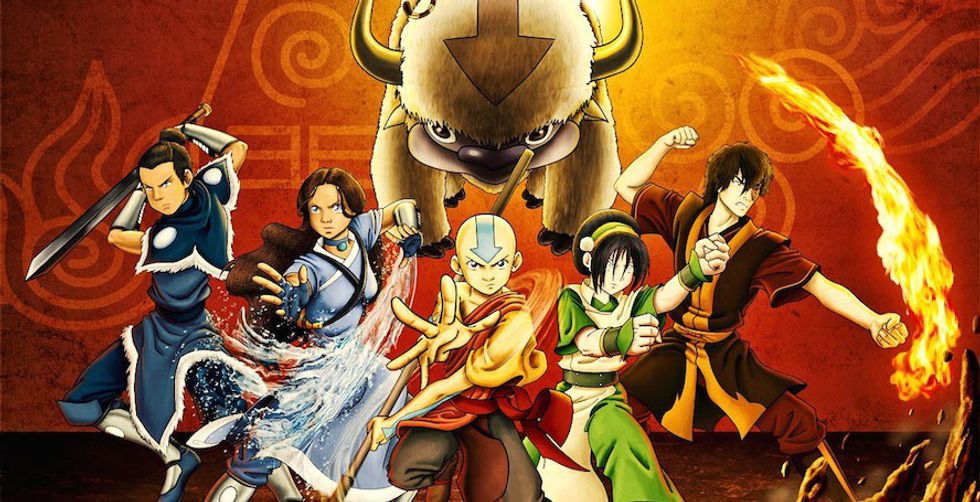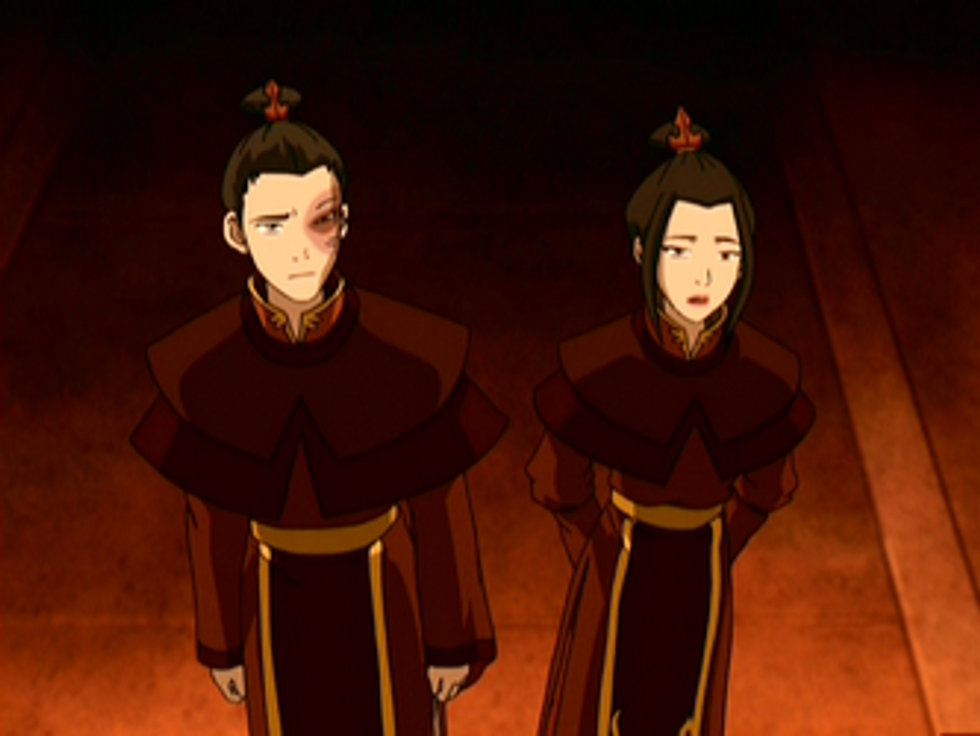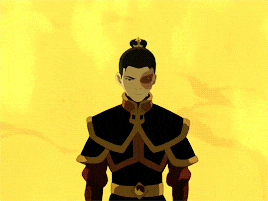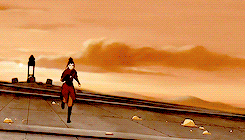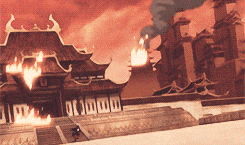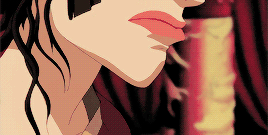I want to talk about Zuko and Azula's relationship. Specifically, their relationship to their father, and their relationship with each other in one of the most beautiful scenes of the show: the final Agni Kai.
Zuko, 13-16, and Azula, 11-14, do not have a happy and gushy family scene. Fire Lord Ozai is a tyrant over the four nations, and his iron fist does not discriminate when it comes to his children. For better or for worse, the royal children have different reactions to the miasma of fear and power in the palace.
Since being banished and forever scarred by his own father, Zuko tries his best to be consistently evil—tracking down the Avatar, using power and fear to get his way, etc.—but ultimately fails. His heart is too good to follow the same path as his father. It takes Zuko almost three entire seasons (and years) of the show before he can come to grips with himself and realize that he is not his father's son.
"For so long, all I wanted was for you to love me, to accept me. I thought it was my honour that I wanted. But really, I was just trying to please you. You, my father, who banished me just for talking out of turn. My father, who challenged me--a 13 year old boy--to an Agni Kai. How can you possibly justify a duel with a child?...I'm going to join the Avatar, and I'm going to help him defeat you."
Azula, on the other hand, embraces the ideology of her father. A gifted firebender from a young age—Azula was always a stronger bender than Zuko—Azula firmly establishes herself as Ozai's right hand, and has no plans to let her relatively weaker brother inherit the title of Fire Lord.
"I don't have sob stories like all of you. I could sit here and complain how our mom liked Zuko more than me, but I don't really care. My own mother... thought I was a monster... She was right, of course, but it still hurt."
Azula is not a flat, two dimensional villain like Ozai. One of the most important episodes in season three about Azula is "The Beach." On a vacation, Azula reflects on how her own mother thought that she was a monster, and then brushes it away. We aren't given much—Azula's complexity isn't as detailed as Zuko's—but there is sympathy for Azula, however grudging. It is possible to imagine a world where their mother did not leave, and where Zuko and Azula could have grown up together like normal children and been friends. But that isn't the world Azula and Zuko live in. Between fate, circumstances, and her own choices, Azula's isolation and pursuit of power twists her horribly. Which brings us to the final Agni Kai.
The final Agni Kai between Zuko and Azula is as tragic as it is beautiful. Zuko, finally a master bender, confronts his sister, one last time, at the royal palace in the heart of the Fire Nation. The battle itself is a beautiful and deadly display of potent firebending, even reminiscent of the Dance of the Dragons. The tragedy of the final Agni Kai lies in what Azula has become.
Azula is a terrible person who had done many terrible things, and during the final Agni Kai she is bent on killing her brother. But Azula is also just a fourteen year old girl. A fourteen year old girl, so utterly ruined and twisted that she's driven to insanity. Azula has never known any real love: repulsive to her mother, envied by her brother, and used by her father. Azula is a horrible villain, but she is also a horrible tragedy.
The final Agni Kai is not meant to pump adrenaline and elicit cheers. The music isn't the energetic, suspenseful music you'd typically find in a final, epic battle. The music is quiet, slow, and sad. There is no celebrating when Azula is finally sobbing and in chains. There is nothing victorous or comfortable, watching Azula scream in defeat and pain. Zuko's triumph is hollow--defeating Azula was necessary to help restore balance to the four nations, but it destroys the person who used to be his sister.
And this is one of the reasons why "Avatar: the Last Airbender" is not just a "kid's show." The writers chose to look at the final Agni Kai for what it is: a tragedy. There's no hiding or side-stepping, pretending that Azula is only a two dimensional villain for the sake of a last showdown. At the end of the day, after three long and full seasons, the show treats its characters for what they are, villain or hero, simple or complex. "A:TLA" is more than just a "kid's show."
P.S. Gifs and words cannot do the emotional import of the final Agni Kai justice. Watch it here.




